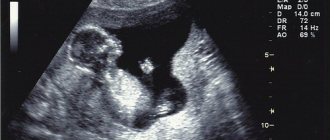Rotavirus infection is a disease that is quite common in both adults and children. This disease does not give mercy to women who are carrying a child under their hearts. Rotavirus during pregnancy does not pose a threat to the fetus as such, since the localization of the pathogen is the intestines. The symptoms accompanying the disease are dangerous for a woman, which can lead to dehydration of her body, which will subsequently lead to oxygen starvation of the fetus and can cause premature birth. In the early stages of pregnancy, fetal fading may be triggered.
This disease is often called the disease of dirty hands, since the main route of transmission is through household contact. You can become infected through water, food, or simply by communicating with a carrier of the virus.
Causes
Rotavirus is an RNA-containing microbe that parasitizes the human gastrointestinal tract and causes severe inflammation. The pathogen is released into the external environment with the feces of a sick person (with clinical symptoms of pathology) or a carrier who does not outwardly show signs of infection.
Ways of spread of rotavirus in the environment:
- fecal-oral - realized through contaminated food and water;
- contact-household - carried out through public objects on which the microbe lingers;
- the airborne route has not been fully studied.
Rotavirus is resistant to environmental factors and tolerates cold and heat well.
Women during pregnancy and children under 5 years of age are primarily susceptible to infection due to the lack of complete immune protection.
Contributing factors include overcrowding in teams, non-compliance with hygiene standards (dirty hands) and sanitation (unwashed food).
What absolutely should not be done
- You cannot take any antiviral drugs, as this virus cannot be killed with drugs.
- It is forbidden to perform gastric lavage at home. Such actions, given the severe irritation of the mucous membrane, will lead to a worsening of the patient’s condition.
- It is forbidden to consume dairy products, since the intestines cannot process them due to the lack of enzyme production during illness.
- There is no point in taking antibiotics. As you know, antibiotics are useless even against primitive viruses. Also, antibiotics destroy the intestinal microflora, so you will face even greater problems.
- Any physical activity is prohibited.
- You should not take a bath or go to the sauna, as the body will very quickly lose its already small amount of fluid due to sweating.
Did you know? The human genome (hereditary material) consists of one-third virus-like elements. Scientists also believe that the gene encoding the protein, niacin, was introduced by retroviruses, one of whose representatives is HIV.
Symptoms
Rotavirus in pregnant women manifests itself clinically in the same way as in an adult. The latent (incubation) period lasts up to two days, sometimes it can be reduced to several hours. The prodromal (highest) stage of the disease during pregnancy begins with the woman’s nausea, which ends with repeated vomiting. In parallel, with rotavirus, foul-smelling diarrhea with pain and rumbling in the abdomen occurs.
Intoxication syndrome develops - body temperature rises to 39–40 °C, accompanied by chills, sweating and general weakness.
A number of women during pregnancy with rotavirus develop catarrhal symptoms - a runny nose, a bothersome cough, a sore throat.
The course of the disease can be mild, moderate and severe. A mild form of intestinal infection occurs without complications and has a favorable outcome. It does not pose a threat to the fetus or woman.
Moderate and severe forms of rotavirus infection during pregnancy are characterized by the development of dehydration (dehydration of the body). This is the result of repeated vomiting and diarrhea. The expectant mother experiences severe thirst, dry mucous membranes and skin. Blood pressure and urine output also decrease. Convulsions are likely due to electrolyte imbalance.
General characteristics of the disease
Rotavirus infection during pregnancy follows the classical pattern. This infectious disease is caused by pathogenic microorganisms that are localized in the intestines and severely damage its walls. The disease is quite contagious and can be dangerous if treatment is not started on time. Characterized by severe vomiting and watery diarrhea.
People who are far from medicine may think that the name rotavirus comes from the word mouth. In fact, this virus has nothing to do with the oral cavity, and got its name from the Latin word rota, which translates as wheel. The shape of the pathogen is very similar to this item.
A person can get rotavirus at any age, but a special peak of diseases occurs in children from 1 year to 6 years. In addition, people with weakened immune systems often get sick.
The danger of rotavirus during pregnancy
An intestinal infection in itself is not dangerous to the fetus. This is explained by the fact that the pathogen does not penetrate the protective placental barrier. During pregnancy, the mother develops antibodies in response to the introduction of rotavirus. After the baby is born, they will pass into the baby’s breast milk and will be able to protect him from pathology.
In the early stages of pregnancy, women often mistake infectious gastroenteritis for toxicosis of the first half. Some people don’t even know that they are in an interesting position. In this regard, the majority do not seek medical help and rotavirus progresses.
In the early stages
The infection becomes dangerous and serious during pregnancy, acquiring a severe course with the development of dehydration of the body and the appearance of complications:
- A sharp decrease in blood pressure in a woman up to the development of hypovolemic shock. This provokes oxygen deficiency (hypoxia) in the baby. In the early stages of pregnancy, this can lead to miscarriage or delayed fetal development.
- Severe electrolyte imbalance leads to seizures, which ends in interruption.
- Dehydration in early pregnancy increases the risk of a neural tube defect in the baby.
- The appearance of insufficiency of kidney function in a woman may threaten the need to terminate the pregnancy for medical reasons.
Rotavirus significantly reduces the immunity of the expectant mother, which contributes to the development of bronchitis, pneumonia and other inflammatory diseases that negatively affect the intrauterine development of the fetus.
In the later stages
Complications of intestinal flu in the second and last trimesters of pregnancy are no less dangerous than in the early stages. A mild degree of intestinal flu is again not terrible, but moderate and severe forms of the pathology can significantly harm the unborn child.
Rotavirus infection during late pregnancy causes dehydration, as a result the blood thickens even more, and this leads to undesirable consequences for the woman and the fetus:
- thrombus formation in the mother's vessels and the development of deadly conditions - stroke, myocardial infarction, pulmonary embolism, inflammation of the veins of the lower extremities;
- oxygen starvation of the child, which is fraught with developmental delays and fading of pregnancy;
- threat of miscarriage.
A decrease in circulating blood volume as a result of dehydration due to rotavirus affects the amount of amniotic fluid, which can lead to the development of oligohydramnios.
Frequent diarrhea and increased intestinal contractions during pregnancy increase the tone of the uterus and provoke premature birth.
General malaise, high fever, and intoxication that occur when rotavirus is introduced lead to negative development of the baby in the womb and increase the risk of an unfavorable course of labor.
Escherichia coli
Often, analysis shows the presence of E. coli in urine and culture during pregnancy. When discovered, the woman is very frightened. The bacterium can have a strong effect on the intestinal system, causing severe disorders - vomiting, diarrhea. Habitat: large intestine, bladder. An acceptable limit for the content of E. coli in urine has been established, but it should not be present there.
Symptoms:
- Diarrhea.
- Vomit.
- Fever.
- Nausea.
- Loss of appetite.
- Nagging pain in the abdomen.
The disease is dangerous for the expectant mother and fetus. It can greatly reduce a woman’s immunity, making the body vulnerable to disease. First, the bacterium (Escherichia coli) enters the urinary tract, from where it rises to the bladder. The child develops pathologies that can lead to death.
Escherichia coli bacterium
Prevention
To ensure that E. coli is not found in bacterial culture or discharge from the bladder, careful prevention of the disease is carried out.
- Follow the rules of personal hygiene. You need to wash in the direction from the vagina to the anus. Otherwise, fecal residues will be carried into the vagina and the bacteria will appear in the urinary tract.
- You can't wear thongs all the time. Lingerie creates a friction effect and affects the transfer of infection to the vagina.
- Avoid sexual intercourse with a mixture of intestinal and genitourinary microflora.
- Do not use scented pads or toilet paper.
The rod can live in the body without manifesting itself. A woman lives her life to the fullest and is unaware of the presence of E. coli in her bladder. It is recommended to undergo tests periodically. The doctor prescribes a culture and a smear during pregnancy to determine the presence of infection. Pregnancy management is carried out in such a way that tests are taken from trimester to trimester. It is impossible to miss E. coli in the culture - the analysis is taken frequently in order to catch a possible infection in time and prevent its progression.
Escherichia coli test
Treatment
If the analysis shows the presence of infection, begin treatment. It causes a serious kidney disease - pyelonephritis. The disease is dangerous during pregnancy. With pyelonephritis, severe pain occurs. It is easier to prevent than to cure - the kidneys suffer. There remains a danger for the child. Pregnancy ends in miscarriage, intrauterine death of the fetus, and death of the mother.
During pregnancy, gentle treatment is used. Less commonly prescribed are serious drugs that affect the child - Canephron, Amoxiclav, Furagin.
E. coli is treated with folk remedies. Plantain decoction, sunflower, and celandine are used. Before self-medication during pregnancy, you should consult your doctor.
Diagnostics
If signs of intestinal flu appear during pregnancy, a woman should not self-medicate. You should immediately seek medical help from an appropriate specialist.
Women who are expecting a child are examined for rotavirus by an infectious disease specialist together with an obstetrician-gynecologist, whose consultation is necessary to monitor the progress of pregnancy.
Subjective diagnostic methods include clarifying the patient’s complaints and carefully collecting anamnesis. A gynecological examination is mandatory.
Identification of rotavirus is carried out using laboratory methods:
- enzyme immunoassay (ELISA);
- polymerase chain reaction (PCR);
- bacteriological culture of washing water, vomit, feces.
Mandatory monitoring of general blood and urine tests for early detection of signs of complications.
Ultrasound examination of the fetus allows you to clarify the condition of the child inside the womb.
Rules for preventing dehydration
If you suspect a rotavirus infection, you should include bananas in your diet. Fruits help prevent electrolyte loss. Also, if you are unable to purchase a pharmacy rehydration solution, you can drink water with salt and sugar.
The process of dehydration can be slowed down with diet. During diarrhea, it is recommended to include in the diet:
At the same time, you need to avoid foods that can aggravate diarrhea: sweets, fatty, hot and spicy foods, whole milk, caffeinated drinks.
Treatment
Rotavirus infection that occurs in pregnant women is an indication for hospitalization in a hospital for observation and therapy. Treatment should be comprehensive, have an individual approach and, most importantly, not harm the developing baby in utero.
Diet
Diet during rotavirus plays a significant role and a woman must follow it unquestioningly. Food should not irritate the mucous membrane of the inflamed intestines and stomach, therefore thermal and chemical sparing is important - do not fry, but only steam, exclude spicy, too sour, marinades and smoked foods.
If affected by rotavirus during pregnancy, second chicken broths, baked vegetables, lean meats and fish, white bread, and water-based porridge are recommended. You should not overload the gastrointestinal tract with a large meal, but the food should be varied, which is important for the normal formation of the fetus.
In case of rotavirus, the emphasis is placed on the drinking regime to prevent the development of dehydration. However, it is important to monitor edema in a pregnant woman and monitor urine tests to avoid overloading the kidneys. It is recommended to drink non-carbonated mineral water, homemade compotes with dried fruits, fruit drinks, and weak herbal tea.
Medicines
To treat rotavirus, medications during pregnancy must be prescribed with caution to avoid negative effects on the unborn child.
In the first trimester of gestation, you should refrain from taking any medications. In early pregnancy, it is strictly forbidden to self-treat for rotavirus, even with herbal preparations, without a doctor’s prescription. The last trimesters of pregnancy are safer, since the placental barrier is actively working. In this regard, the list of approved drugs is significantly expanding.
There are no drugs that have a detrimental effect on rotavirus, and therefore it is only possible to use symptomatic therapy to alleviate a woman’s condition during pregnancy.
Drug treatment includes:
- Anti-inflammatory drugs with antipyretic properties. Paracetamol-based substances - Panadol, Cefekon, Efferalgan - are safe during pregnancy. At the same time, it is recommended to actively use physical methods to reduce the temperature - vinegar and vodka compresses on the temples, forehead and wrists.
- To restore water balance - drinking solutions Regidron, Oralit.
- Enterosorbents can be used to consolidate stool and eliminate diarrhea. Drugs bind toxic substances in the intestines and remove them from the body - Smecta, activated carbon, Polyphepan.
- During pregnancy, local antiseptics are allowed that are not absorbed into the blood from the gastrointestinal tract and do not reach the child - Nifuroside, Bactisubtil.
- To eliminate dysbiosis caused by rotavirus, probiotics are prescribed - Linex, Hilak, Bifidumbacterin.
Antiviral and antibacterial drugs for intestinal infections during pregnancy are usually not indicated.
Folk recipes
When medications are contraindicated, and the symptoms of the disease haunt a woman, you can resort to individual home remedies.
Herbal plants should be used with caution against rotavirus, as some of them are prohibited during pregnancy. Therefore, before starting treatment with folk remedies, you should consult your doctor.
To improve the functioning of the gastrointestinal tract, several recipes are recommended:
- Compote with raisins - helps fight signs of dehydration. Soak the dried grapes and pour 4 tablespoons into 500 ml of boiling water. Boil the drink for half an hour over low heat. When the product is ready, add a pinch of salt and sugar if desired. Drink 1 glass of compote three times a day before meals until recovery.
- Rice broth. Rinse the cereal and add water in a ratio of 1:7, cook over low heat until it is completely boiled. Leave the cooked rice for 60 minutes. Strain the broth and drink 20–30 ml every 2–3 hours per day.
In addition to the recipes described, to relieve the symptoms of rotavirus infection during pregnancy, you can use oak bark, blueberries and viburnum, starch, and galangal root.
Diet after rotavirus infection
During the acute period of intestinal flu, it is not recommended to eat anything at all. This is especially true for those dishes and products that irritate the intestines and digestive tract as a whole. After an illness, it is also necessary to follow a specific gentle diet.
Since the body of a pregnant woman is faced with an active inflammatory process, fibrinogen is increased in her blood. To normalize its value, it is necessary to eat properly for at least 5-7 days after the final disappearance of the unpleasant symptoms of this disease.
- The basis of the diet of the expectant mother during the period of recovery from intestinal flu should be porridge cooked in water.
- For lunch, it is very healthy to eat stewed or pureed vegetables, as well as mashed potatoes without adding milk.
- Among drinks, it is best to give preference to jelly, which has a viscous consistency.
- You can treat yourself only with crackers or unsweetened cookies.
It is better not to consume any fried foods, dairy products, fresh fruits and vegetables, as well as sweets and confectionery products at this time, so as not to aggravate the situation and not provoke the recurrence of unpleasant symptoms of the disease.
Prevention
An intestinal infection is much easier to prevent than to treat, especially if a woman is expecting a child.
To prevent the transmission of rotavirus through contact and household contact, it is important to keep your hands clean. You need to wash them with soap after returning from the street and before each meal. During pregnancy, a woman should try to avoid crowded places, and even more so during an epidemic of intestinal infection.
To interrupt the fecal-oral mechanism of spread of rotavirus, it is recommended to drink tested water. It is better to drink boiled or store-bought from a bottle. You should not eat unwashed vegetables, especially those bought at the market. It is important to comply with food storage standards and carefully process them thermally.
How can you get infected?
There are known household ways of contracting the infection.
Most often, the virus is transmitted through tactile contact with the body of an already infected person. You can also become infected through contact with vomit or feces of an infected person, for example, during cleaning. Pregnant women should be wary of handling raw meat and fish. It is necessary to refrain from drinking unboiled water. The disease is especially often diagnosed in the second trimester. It is at this time that hormones actively influence a woman’s digestive system. There is a sharp relaxation of the intestinal muscles, a general deterioration in the body's resistance to external irritating factors.
Antipyretic approved medications and their use
Acute intestinal infection is often accompanied by high fever. During pregnancy, fever can be very dangerous. Therefore, it is necessary to carefully monitor the thermometer values. In normal conditions, antipyretics are not used until 38.5 degrees. But pregnancy is an exception.
The expectant mother needs to take antipyretics already at a temperature of 37.5. Paracetamol is considered the safest drug. It is allowed for any period. The medicine is available in different forms for the convenience of the consumer. If the patient experiences severe vomiting, then it is advisable to use rectal suppositories. For diarrhea, tablets and capsules are recommended. In the second trimester of pregnancy, you can take ibuprofen-based products, such as Nurofen. Use such drugs only as needed and do not exceed the dose.
Preventive actions
It is easier to prevent rotavirus from occurring in a pregnant woman than to treat this disease. Simple prevention methods will help you protect yourself.
Protective measures against rotavirus infection:
- washing your hands thoroughly (especially after going to the toilet, visiting public places and riding public transport);
- thorough processing of vegetables and fruits (it is better to use hot water for this);
- drinking boiled water;
- regular wet cleaning of rooms;
- isolation from the family of a patient with rotavirus (use of hotel dishes, bedding, hygiene items).
By following these recommendations, you can protect yourself and your unborn child from intestinal flu. It is important to do them regularly.











